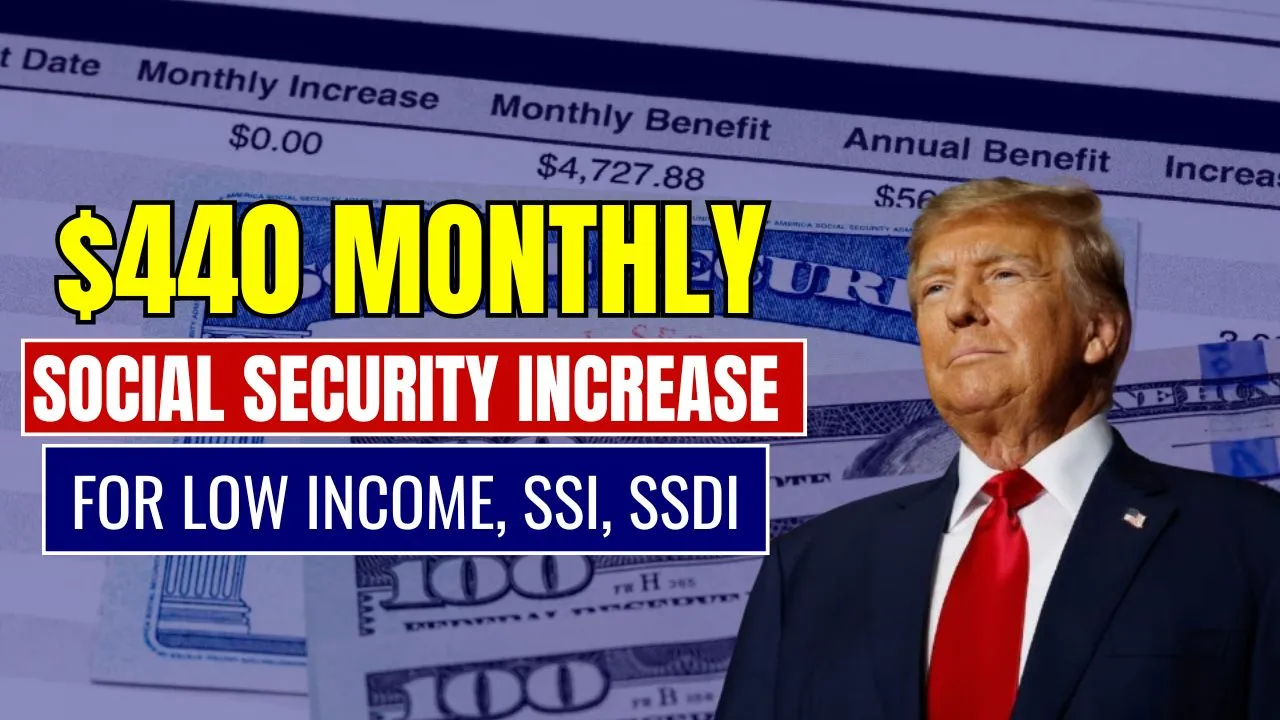Understanding the Social Security Fairness Act 2024: The Social Security Fairness Act 2024 stands as a beacon of hope for millions of retirees in the United States who have faced reduced benefits due to outdated provisions. Designed to address systemic inequities in the Social Security system, the act aims to eliminate financial penalties that disproportionately affect public sector workers like teachers, firefighters, and police officers. These individuals, who often earn government pensions, have faced unfair reductions in their Social Security benefits for decades.
At the heart of the Social Security Fairness Act 2024 is the goal to repeal two major provisions—the Windfall Elimination Provision (WEP) and the Government Pension Offset (GPO). Both policies reduce Social Security payments for those who also receive a pension from jobs not covered by Social Security taxes. If passed, this legislation will restore fairness, providing full Social Security benefits to millions of deserving retirees.
Overview of the Social Security Fairness Act 2024
| Aspect | Details |
| Purpose | Repeal the Windfall Elimination Provision (WEP) and Government Pension Offset (GPO). |
| Affected Groups | Retired public sector employees, including teachers, police officers, and firefighters. |
| Key Benefits | Restores full Social Security benefits for those impacted by WEP and GPO. |
| Legislative Status | Passed in the House of Representatives; awaiting Senate review and approval. |
| Estimated Cost | $196 billion over ten years, raising concerns about Social Security trust fund sustainability. |
What Is the Social Security Fairness Act 2024?
The Social Security Fairness Act 2024 seeks to eliminate the WEP and GPO, provisions that have long reduced Social Security payments for public sector retirees. These policies were implemented to prevent individuals from “double-dipping” into both Social Security and government pension systems. However, critics argue that they unfairly penalize retirees who have paid into Social Security for part of their careers.
By repealing these provisions, the act ensures that retirees receive full benefits based on their lifetime earnings and contributions. Advocates view the legislation as a critical step toward achieving fairness and financial equity for retirees who have served in public sector roles.
Challenges Faced by Retirees
1. Windfall Elimination Provision (WEP)
The WEP reduces Social Security benefits for individuals who also receive a pension from non-covered employment. For example, a teacher who worked part-time in the private sector and paid into Social Security may see their benefits reduced under the WEP. This policy disproportionately affects public sector employees with mixed work histories, leading to significant financial losses during retirement.
2. Government Pension Offset (GPO)
The GPO impacts spousal and survivor benefits, reducing them by two-thirds of the recipient’s government pension. This provision has a particularly devastating effect on surviving spouses, many of whom are left without the financial support they were expecting. In some cases, the GPO completely eliminates spousal or survivor benefits, creating severe financial challenges for families.
Legislative Progress
1. House Approval
The Social Security Fairness Act 2024 passed the House of Representatives with bipartisan support. This milestone reflects growing recognition of the need to address the injustices caused by WEP and GPO. Lawmakers from both sides of the aisle have acknowledged the negative impact of these provisions on retirees.
2. Senate Review
The bill is now under review in the Senate, where advocacy groups are urging swift action. With the current legislative session nearing its end, time is of the essence. Public sector unions and retiree organizations are calling on senators to prioritize this legislation to ensure a fair outcome for millions of Americans.
Key Benefits of the Social Security Fairness Act 2024
1. Restored Social Security Payments
By repealing WEP and GPO, the act will restore full Social Security benefits for retirees who have been unfairly penalized. This change ensures that benefits are calculated based on actual earnings and contributions, without reductions for non-covered employment.
2. Financial Equity for Public Workers
The act addresses long-standing inequities by ensuring that public sector retirees are not disadvantaged for receiving government pensions. This step aligns Social Security payments with the principle of fairness, recognizing the contributions of public workers.
3. Improved Support for Families
Spouses and survivors who rely on Social Security benefits will see significant improvements under the act. By eliminating the GPO, the legislation ensures that families receive the financial support they need during retirement or after the loss of a loved one.
4. Enhanced Retirement Planning
The act provides clarity and predictability for retirees, allowing them to plan their finances more effectively. With the repeal of WEP and GPO, retirees can count on receiving the full benefits they have earned, reducing uncertainty in retirement planning
Financial Implications
Implementing the Social Security Fairness Act 2024 is estimated to cost approximately $196 billion over the next decade. While the financial benefits for retirees are clear, critics have raised concerns about the impact on Social Security’s trust funds and the federal budget.
1. Sustainability of Trust Funds
Increased payouts could strain the Social Security trust funds, potentially accelerating their depletion. Policymakers must address these concerns to ensure the long-term sustainability of the program.
2. Balancing Costs and Benefits
Supporters argue that the cost of the act is justified by its potential to rectify decades of inequities. However, balancing these costs with the need for fiscal responsibility remains a key challenge for lawmakers.
Advocacy and Support
1. Advocacy Groups
Numerous organizations, including public sector unions and retiree associations, have championed the repeal of WEP and GPO for years. Their efforts have been instrumental in advancing the Social Security Fairness Act 2024 through Congress.
2. Grassroots Efforts
Retirees and public workers across the country have mobilized to support the act. Through letter-writing campaigns, petitions, and meetings with lawmakers, these individuals have played a critical role in pushing for legislative change.
3. Political Leadership
Key lawmakers, including Senator Sherrod Brown and Representative Abigail Spanberger, have led the charge for the act’s passage. Their advocacy highlights the importance of addressing the financial challenges faced by public sector retirees.
Frequently Asked Questions (FAQs)
1. Who benefits from the Social Security Fairness Act 2024?
Public sector retirees, including teachers, police officers, firefighters, and surviving spouses, will benefit by receiving full Social Security payments without reductions from WEP or GPO.
2. What are the Windfall Elimination Provision and Government Pension Offset?
The WEP reduces Social Security benefits for those with pensions from non-covered employment, while the GPO reduces spousal and survivor benefits based on government pensions.
3. What is the current status of the act?
The act has passed the House of Representatives and is awaiting review and approval in the Senate.
4. How will the act impact Social Security’s finances?
The repeal of WEP and GPO is estimated to cost $196 billion over ten years, raising concerns about the sustainability of the Social Security trust funds.
5. How can individuals support the act?
Retirees and advocates can support the act by contacting their senators, joining advocacy organizations, and raising awareness about the legislation.
Final Thoughts
The Social Security Fairness Act 2024 represents a crucial step toward addressing systemic inequities in the Social Security system. By repealing WEP and GPO, the act ensures fairness and financial security for millions of retirees who have served in public sector roles.
If you’re impacted by these provisions, consider reaching out to your senators and engaging with advocacy groups to support the act’s passage. Together, we can work toward a Social Security system that truly reflects the principles of fairness and equity.












